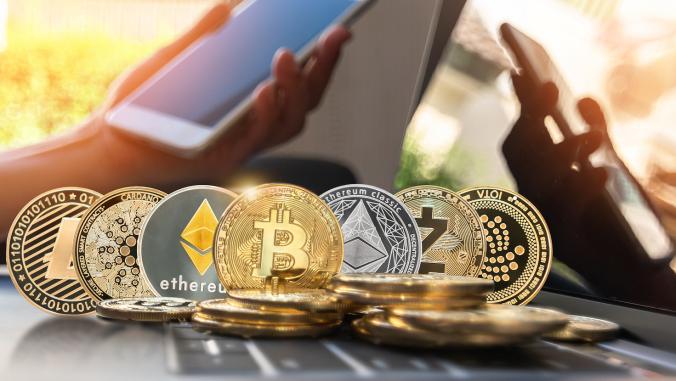The Real Value of Leadership
<p>Leadership has always been a vaguely indefinable quality -- you know a leader when you see one. But when it comes to sustainability in business, leaders are needed more than ever before, all it takes is learning the secrets behind leadership.</p>
Leadership has always been a vaguely indefinable quality -- you know a leader when you see one. But when it comes to sustainability in business, leaders are needed more than ever before, all it takes is learning the secrets behind leadership.
In a recent interview on the benefits of going green for micro businesses, I was asked if there is any real value in sustainability for the small business owner. I cited the obvious but oft-overlooked benefit of cost savings, as well as the PR value that green can bring. Then I added, "there is of course the opportunity to be a leader and an influencer." "Hmm..." my interviewer replied. It occurred to me that she was struggling over how to convey the actual value of leadership to her readers.
I can empathize. How do we quantify and articulate the real value of leadership, particularly to people who don't see themselves as leaders? Yet, it is going to take just that in order to create enough momentum and engage enough people to achieve a sustainable future.
Leadership is that mysterious, enigmatic ability that enables one to turn a vision into a reality by engaging other people. You can't "do" leadership. Leading is more a state of being that permeates your values, your approach and your actions.
Leadership is invaluable in implementing green business initiatives. Whether you are a CEO, a manager, a small business owner or a community organizer, your ability to lead will determine the success of your sustainability strategy. As much as sustainability is a sign of leadership in your industry, leading is a key driver of sustainability within your organization.
Leadership in sustainability comes not only through product innovations; it lies in the use of green products and the implementation of green practices. After all, solar panels and hybrids are useless if we don't find people willing to buy or invest in them. Due to the relatively costly and experimental nature of some emerging green technologies, leadership will be necessary in consumers and companies alike if we are going to close the loop and reduce emissions.
In terms of organizational leadership in sustainability, green initiatives may range from purchasing from sustainable suppliers to launching a green product to issuing a sustainability report. If you are the proponent of a green initiative, understand that your position does not necessarily determine the outcome. Examples abound of students who have made tremendous impacts on their universities and employees on their organizations. The key to success lies in your leadership ability.
What is at the core of leadership ability? Leadership becomes demystified when you discover the secrets behind it. Being a leader is a choice, and anyone can learn to how to do it.
First, there is only one way to lead, and that is by example. Turn yourself into an example, and you'll turn into a leader. You'll also gain an insider's perspective on the limitations of greening your company, which will be key to achieving organizational change once you get other folks on board.
Second, lean on the influencers in your organization. You don't have to stand in front of an auditorium and single-handedly convince your colleagues to recycle, for example. Instead, propose an idea and demonstrate its benefits to people of influence. Show these influencers how you can support them in being the hero. Through the influencers, you'll reach far more people than you might on your own. The payoff is that in the process, you will become more influential -- a trait that will serve you throughout your career.
A third secret is that good leaders have strong convictions, not necessarily strong charisma. Leading a green initiative in your workplace with purpose and passion lets you play a part in the greater scheme of sustainability, which has become nothing short of a cultural revolution. If you don't consider yourself a revolutionary, take heart. Neither did Rosa Parks. Neither did Martin Luther King, Jr. These individuals simply acted out of personal conviction and ended up inspiring a nation. How is that for a legacy?
You're probably asking yourself what being a social revolutionary has to do with managing a department or running a business. All require leadership, and frankly, courage. And if you are considering going green, it will take an extra dose of each. Though it can seem like courage is a waning virtue, the green movement is showing us that courage is alive and well in America.
Consider that nearly 600 mayors have now signed the U.S. Mayor's Climate Protection Agreement, representing over 67 million Americans in 50 states. These leaders range from Mayor Burger of Turtle River with a population of 79 to Mayor Bloomberg of New York City with a population of 8 million. Signing this agreement voluntarily is a courageous act that is inspiring cities across the United States to reduce emissions. Not one of these 600 mayors thought himself too insignificant, or for that matter too important, to play a part. And guess what -- it all started with just one mayor, Greg Nickels of Seattle.
To quantify the real value of being a leader would rob it of its essence. Leadership inspires admiration and action. Leaders beget leaders. A company of leaders is more powerful than one that merely contains workers. Combine leadership with the growing popularity of going green, and you've got potential for prodigious growth. These are the companies that people want to work for and write about -- so add increased loyalty and enhanced reputation to the list of benefits.
So, what about the value of going green for those micro business owners, sole proprietors and self-employed professionals? The business case is reason alone to consider a sustainability strategy. Companies of any size can tap into the emerging Lifestyles of Health and Sustainability (LOHAS) market, which includes over 50 million consumers putting over $230 billion into the economy each year. Those figures are expected to grow exponentially as more Americans identify with the goals of oil independence and seek ways to minimize climate change.
What about the costs? Try rewiring cost as investment. The ROI of going wind-powered or reducing emissions could mean more sales, increased market share, enhanced visibility and happier employees. Cleaner air and a healthier climate are not bad benefits, either. It might even mean a better future for your kids.
Is there really any way to show the value that leadership adds to your bottom line? Here's the real bottom line: leadership is one value you can't put a price tag on.
Anna Clark is president of EarthPeople, a consulting firm that helps companies of all sizes save money and bolster their brand through the leading-edge principle of sustainability.





